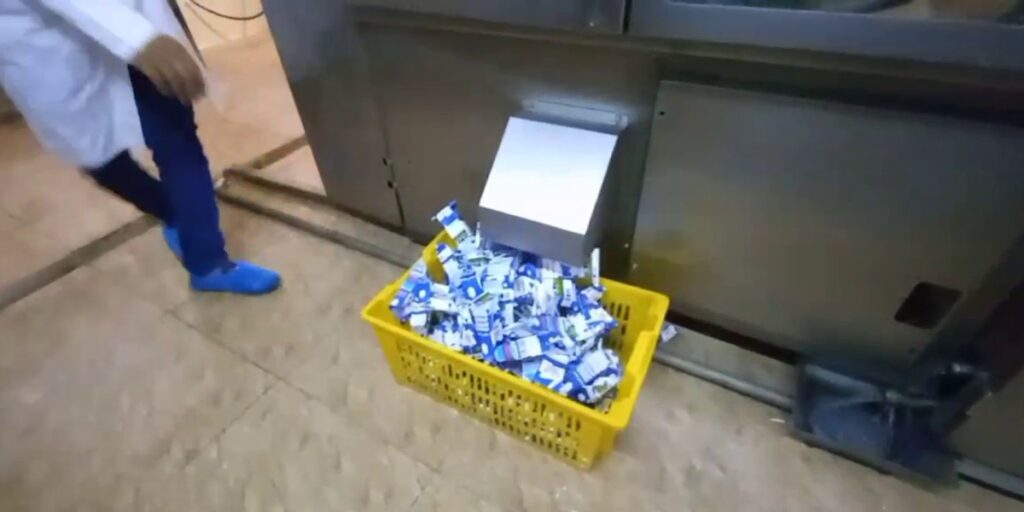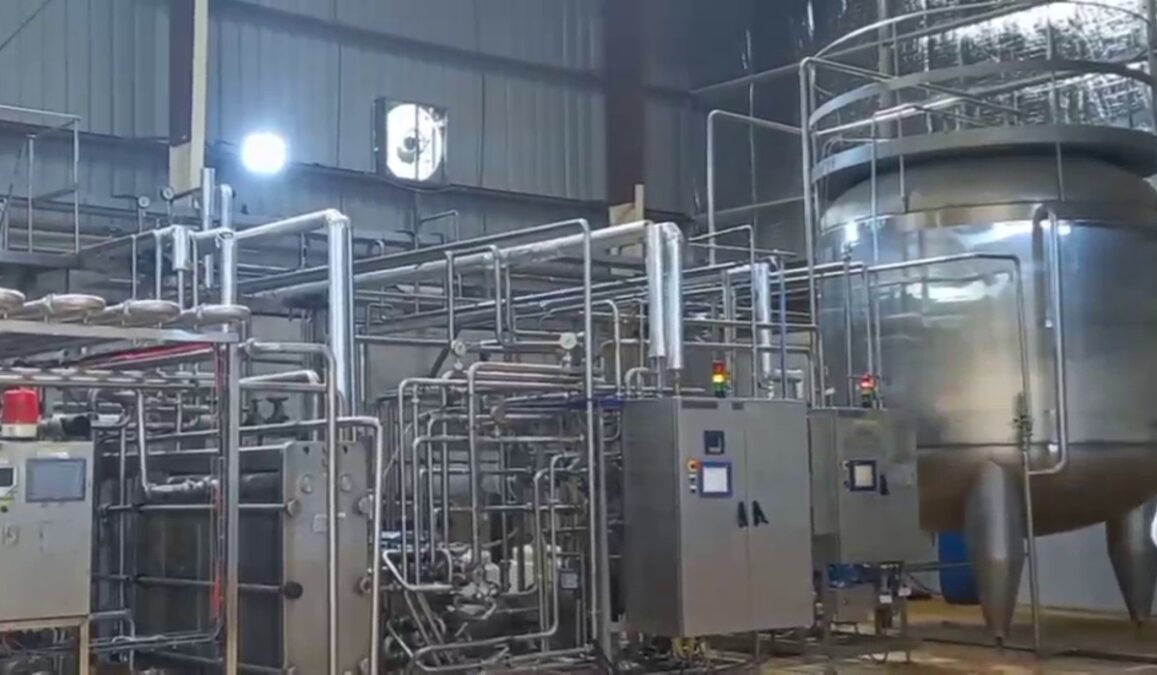A dairy products company kicked off its operation in Kabul on Tuesday with an initial investment of $7.7 million amidst a sharp reduction in investments in the country over the past year after the fall of the previous government.
The Asad Wisal Dairy Company would produce 20,000 cartons of dairy products a day, which will be one of the largest companies in this field after the state-owned Gorazgah dairy firm.
The company has initially hired at least 150 people in its main headquarters and over 1,000 others will be engaged in the business outside the firm.
Syed Ahmad Ahmadi, the head of the company, told a ceremony in Kabul that they have activated 202 cattle farms in 20 provinces to supply milk for the company.

He urged the Taliban to address the scarcity of land for investors by allocating certain places for their businesses.
He called on the people to buy domestic products to take part in the country’s self-reliance in terms of dairy products.
A private sector representative said at the event suggested more efforts to support businesses by providing them security, electricity, land and other facilities to improve their businesses or bring in new opportunities.
Afghanistan’s annual imports were at least $7 billion in 2021 and 2020, said Abdul Jabbar Safi, head of the Afghanistan Industries Association, calling on the Taliban to reduce corruption to zero to open the way for more investments in Afghanistan.
Taliban officials at the gathering welcomed the company’s inauguration, saying it would help create jobs for the people.
“We will provide full support to investors,” said Qadratullah Jamal, Taliban’s deputy minister of industry and commerce.
Figures show that at least 600 companies are operational in Afghanistan that produces 56 types of consumer goods for the country. The products include construction materials, food, plastic industries, dairy, beverages, and others.
The production of mineral water, non-alcoholic drinks, plastic-made products, and some construction materials by local companies has reached a sufficient level that there is no need to import them to the country.
This comes as the World Bank in a new report this week projected a low growth path for Afghanistan’s economy along with a reduction in the real GDP in the country for the next two years.

The report “Coping with Shocks: Migration and the Road to Resilience” says that Afghanistan’s economy is projected to move to a low growth path (2.0 to 2.4 percent) for the next two years with no improvement in per capita incomes owing to high population growth and no significant changes in poverty or food insecurity.
According to the report, inflation is expected to remain high immediately due to global commodity price increases and supply constraints, further eroding the real value of household incomes.
The World Bank said the economy is now re-adjusting from the “aid bubble,” and the international community’s ongoing humanitarian and off-budget basic service support is expected to mitigate some negative impacts of the contraction.




